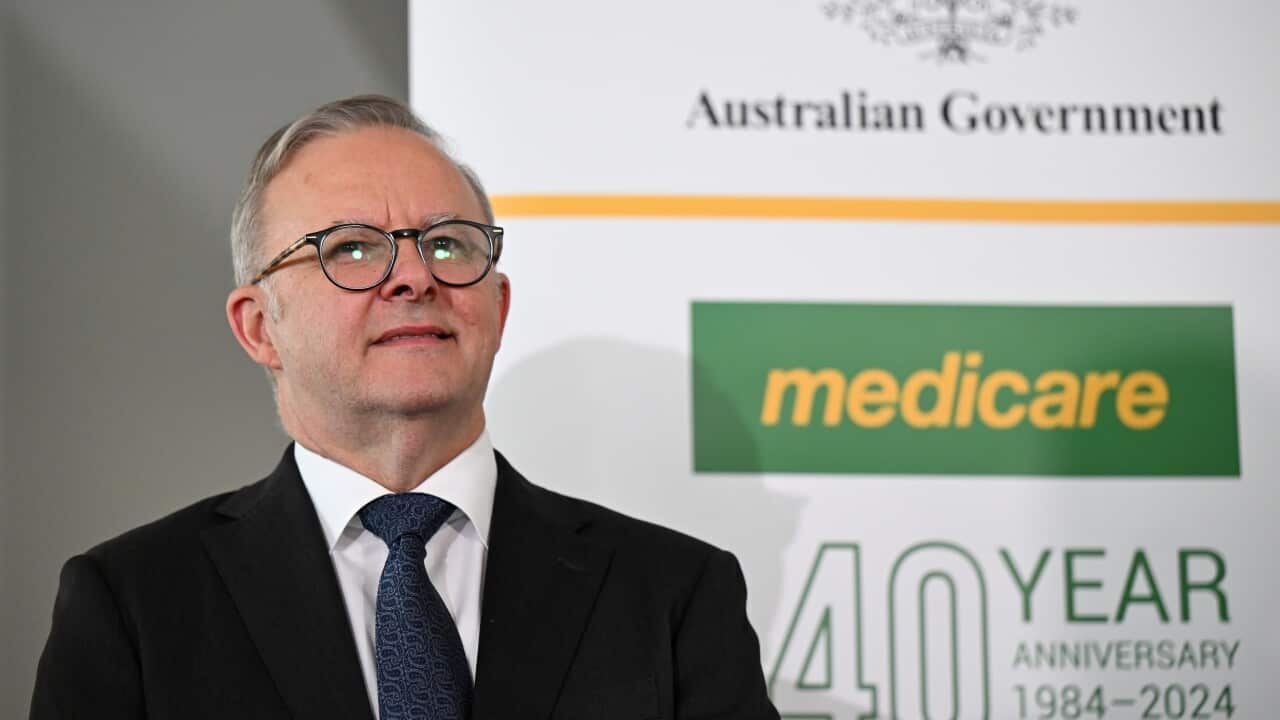The Albanese government is pledging to cover every Australian with bulk billed GP visits under an $8.5 billion plan it’s described as the biggest boost to Medicare in history.
The plan — which the Coalition said it would match — will expand the bulk billing incentive currently only afforded to a select group of people to all 26 million Australians, and incentivise payments for clinics to bulk bill.
Prime Minister Anthony Albanese said the government’s commitment to Medicare had been “unwavering” since its creation in 1984.
“One card covers it all — not your credit card — your Medicare card,” he said.
“And our government wants your Medicare card to carry the same value in every community.”
What is in Labor’s bulk bill promise?
The first is an expansion of the bulk billing incentive, a payment that clinics receive for bulk billing patient visits.
Labor but it’s currently only applied to children under 16, pensioners and concession card holders.
Under Labor’s campaign promise, the incentive would be extended to all Australians from November 2025, for the first time.
The second component is the introduction of an incentive payment for clinics that bulk bill every patient, to be set at 12.5 per cent of a practice’s Medicare rebates.
The government has said that these two policies will triple the number of fully bulk billed practices to around 4,800 nationally by 2030.
It means the the Medicare payment for a standard GP consultation at a bulk billed, city practice will be almost two-thirds higher — from $42.85 to $69.56.
For a regional or rural practice it will be almost doubled — from $42.85 to up to $84.86, depending on location.
Australian Medical Association president Danielle McMullen said in some parts of the nation there would be a shift in the rates of no out-of-pocket consultations, while other parts would see no difference.
“I do hope this will make a difference in rural and regional communities and in our areas of socio-economic disadvantage, where GP’s have been really trying as hard as they can to keep those costs down,” she said.
‘We don’t want American health system’
More scholarship and training opportunities for nurses and doctors would also be part of the funding.
“Labor created Medicare for Australia and it was built on the Australian values of fairness and opportunity for all,” Albanese told reporters in Tasmania on Sunday.
“We don’t want our health system to be more American. We don’t need to copy the ideologies of any nation. We only want our health system to be more Australian.”
Medicare shaping up as key election issue
Citing Australian Medical Association data, Health Minister Mark Butler said the plan would address $8.3 billion that was cut from Medicare due to the Coalition’s freezing of Medicare rebates over a decade ago.
While it was Labor that initially froze rebates in 2013, it said at the time that this was only a temporary measure.
After the Coalition won the 2013 federal election, then health minister Peter Dutton announced the freeze would be extended.
Previously, rebates were increased to keep pace with inflation — a process known as indexation. The freeze essentially put indexation on ice.
Opposition leader Peter Dutton said the Coalition would match the $8.5 billion in funding “dollar for dollar”.
“Without sound and prudent economic management – something Labor is incapable of – investments like this cannot be delivered. Only the Coalition can guarantee a strong economy to deliver better healthcare,” he said in a joint statement.
The opposition called on Labor to match its $500 million commitment to mental health support.
The current state of bulk-billing
Bulk-billing rates spiked shortly after the COVID-19 pandemic struck in 2020 but started tailing off from mid-2021.
The figures were on a downward trajectory until 2024 — a reversal that Labor has attributed to its tripling of the bulk-billing incentive.
However, data from other organisations paints a less flattering picture of bulk billing than the health department statistics.
In early February, the Productivity Commission published data showing that 47.7 per cent of patients had all their visits to the GP fully bulk billed in 2023–24.
The commission’s annual government services report showed this number had fallen from 51.7 percent in 2022–23.
In January, healthcare directory Cleanbill found that across the nation offered bulk billing to non-concession card holders.
With additional reporting from the Australian Associated Press.
